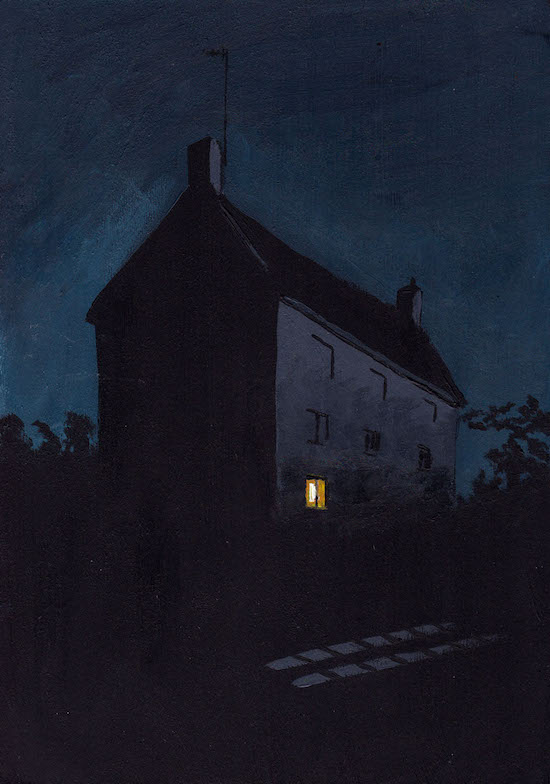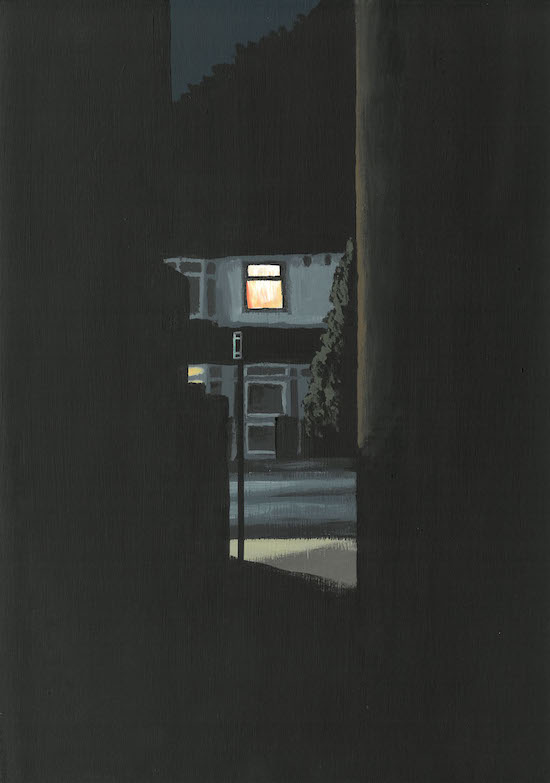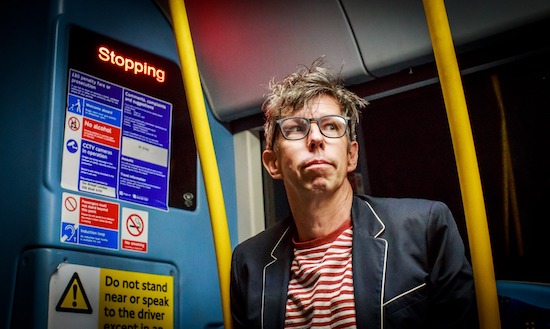Musician, artist and writer Darren Hayman is launching a new solo exhibition of his paintings in London this week.
The showcase, ‘night paintings’, is his biggest yet and is comprised of 29 works executed at night. The exhibition will be held at the Art Dog Gallery in the Brockley area of South London from July 20 to 30, with a launch event on the first day featuring music from Hayman and his band.
The exhibition will also be accompanied by a book called The Last Dog Walk, which features images and short poems. It’s available to purchase via Hayman’s website. We dropped Darren Hayman a line below to find out more about the exhibition and book project.
Has painting increased as part of what you do in recent years?
Darren Hayman: Painting was what I was supposed to be doing all along. It was my first love and it’s what my degree was in but looking back I don’t think I was ever that good. There was something about music that pulled me into it to work harder. With music I’ve always been prepared to dismantle what I know, to start again. To put it another way, music was my art, painting was my craft.
Painting more and more became a very therapeutic thing. It has a direct relationship to my heart rate. Painting got me through a marriage break-up. It just calms me down. I think it’s that almost medicinal quality to the practice of painting that has made me do it more and more and gradually reconsider my position as to how good I could be at it. For the first time I’m telling myself that I can do better, that work can be thrown out and I can be harder on myself. This exhibition is me starting to realise that I might be good at this. Painting will probably stop being good for me now.

How does it relate to your music?
DH: As soon as I left art college, I started using the lessons I had learnt there in music, but weirdly I didn’t use them as much in my painting until recently. I had a couple of tutors in particular who did some interesting stuff with restrictions, such as a bag of flour tied to the student’s hand to make their drawing hand get tired quicker. It was supposed to make you think more about each action – things like that. I would constantly impose restrictions on myself and my band and still do. It just didn’t occur to me to be so strict on myself in painting until recently, probably because I didn’t want to spoil the fun, but now I’ll paint the same thing over and over again in much the same way as I’ll make thematic albums with songs repeating ideas in search of something.
What with the music and the painting, it seems you have a cottage industry of creativity to survive, is that what it is to you?
DH: Music artists who play much bigger stages than me often ask how come I don’t have a ‘day job’ when they do. I think I am cheap to run and I only seem to have ideas that I can afford to do. I don’t think of movies and songs that need orchestras. It makes sense to me to have ideas that I can do tomorrow. I swing between thinking of what I do as art and as a job. I can find a romanticism in thinking of what I do as an industry. It doesn’t cheapen it. It’s quite noble, even.
Often with the painting I don’t even archive what I’m doing or make a permanent record of it. I simply paint it. Take a phone photo and put it on Twitter then get someone to PayPal me so I can buy lunch. It’s a very simple and straightforward way to make money. I’m happy to be a cottage industry. I would be equally happy to have a big company back me to make something huge and ambitious but I do actually have huge ambition in my small endeavours. I simply want to be very, very good. The book that goes with this exhibition is another cottage industry-type idea.

Why and when did you start the night paintings, and what drove the subjects you chose?
DH: The paintings were originally called, and I suppose still are, The Last Dog Walk, and that’s where the idea came from. Just walking the hound at 11pm and seeing these tiny squares of light, windows at night, and how every one has a story behind it. The paintings are about home and also the lockdown and how we redefined our abodes. There is something very exciting and fresh about painting on to black. The pictures are often about what’s in between the windows. They are paintings with lots of information missing.



